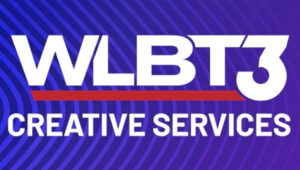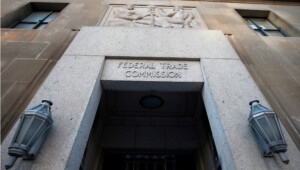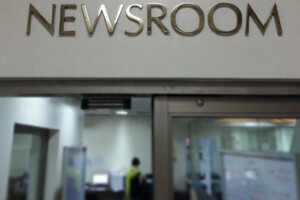 NAB President Gordon Smith agreed to continue leading the trade group through the end of 2018. Terms were not disclosed. Under his current deal, he is being paid around $1.8 million annually.
NAB President Gordon Smith agreed to continue leading the trade group through the end of 2018. Terms were not disclosed. Under his current deal, he is being paid around $1.8 million annually.
Among NAB’s major beefs is that the auction regulations released June 2 don’t protect broadcasters from the possibility that they may get stuck with at least part of the cost for moving to new TV channels during the post-auction channel repacking process. “It’s clearly unacceptable,” says NAB’s Rick Kaplan.
NAB’s practice of letting members of Congress record public service announcements for free could be serving another purpose that benefits the industry, based on an analysis of lawmaker participation. The free airtime on community stations has drawn watchdogs’ attention as broadcasters are trying to showcase the importance of local radio and fight against possible new royalty fees for stations.
The National Association of Broadcasters is poised to ask the D.C. Circuit Court of Appeals to overturn a March FCC vote that requires broadcasters to unwind many of their advertising sales resource sharing arrangements, according to a source familiar with the matter.
The trade group’s chief technology officer is pursuing “new opportunities.” Lynn Claudy, NAB SVP, will serve as the association technology department’s interim head.
There was little doubt that AT&T’s proposed acquisition of DirecTV would draw opposition from many quarters in media and entertainment. The NAB and the American Cable Association, a trade org for smaller cable operators, were blunt in raising objections to the latest Big Media mega-merger.
It asks the appeals court in Washington to overturn the FCC’s new “processing guidelines” for TV station applications proposing sharing arrangements and contingent financial interests, calling their adoption “arbitrary [and] capricious.”
NAB chief Gordon Smith tells engineers at the ATSC’s annual conference that a new broadcast TV standard is needed so the industry can “move quickly to increase the number of distribution channels and platforms for our valuable local content, and we must respond to the needs of an ever-more mobile audience.” He also blasts the FCC for being “myopically focused on broadband and delivering our spectrum to wireless companies.”
In a May 7 letter to the FCC, the NAB, the Advanced Television Broadcasting Alliance, the National Religious Broadcasters and the National Translator Association “urge the commission to do everything in its power to ensure that the important benefits of LPTVs and TV translators are not undermined as a result of the incentive auction.”
Good To See NAB Getting Tough With FCC

The trade group tells the commission that its new approach to service agreements is “arbitrary and capricious” and it should stop by May 8.
NAB Opting Out Of Open Net Fray – For Now
Under the commission’s proposal set for a vote next month, broadcasters, who currently pay nothing to ISPs to make their streaming services available to broadband subscribers, may wind up having to pay ISPs for higher-quality connections. But, at least for now, the NAB thinks it’s best to remain on the sidelines of the controversial policy battle.
Why Is David Smith Not On The TV Board?

Why Is David Smith Not On The TV Board?

TV representatives deliver FCC chief Tom Wheeler a list of items they’d like to see included in the commissions incentive auction order expected to be issued next month. Their biggest worry is that the resulting changes from the repack will reduce stations’ coverage areas.
 Broadcasters are having a tough time in Washington. A number of efforts are aimed straight at the business, from the FCC’s recent decision to tighten ownership rules and take back big chunks of TV spectrum for wireless, to a very vocal pay TV lobby pushing hard on Congress to reform retransmission consent. Wrapping up the industry’s national convention in Las Vegas this week, Gordon Smith, NAB president and CEO, remains confident he can generate some big wins for broadcasters in the nation’s capital.
Broadcasters are having a tough time in Washington. A number of efforts are aimed straight at the business, from the FCC’s recent decision to tighten ownership rules and take back big chunks of TV spectrum for wireless, to a very vocal pay TV lobby pushing hard on Congress to reform retransmission consent. Wrapping up the industry’s national convention in Las Vegas this week, Gordon Smith, NAB president and CEO, remains confident he can generate some big wins for broadcasters in the nation’s capital.
The NAB said that the FCC should stick to the traditional OET-69 methodology for calculating the over-the-air coverage of TV stations. Using another standard, the association said, would be “arbitrary, capricious and contrary to established law.”
 Rebecca Hanson, Sinclair Broadcast Group SVP, strategy and policy, has been named to an open seat on the National Association of Broadcasters TV board, effective immediately, an NAB spokesman confirmed Friday morning. Hanson, a former senior adviser in the FCC’s Media Bureau, started working as SBG’s top Washington lobbyist on Jan. 1.
Rebecca Hanson, Sinclair Broadcast Group SVP, strategy and policy, has been named to an open seat on the National Association of Broadcasters TV board, effective immediately, an NAB spokesman confirmed Friday morning. Hanson, a former senior adviser in the FCC’s Media Bureau, started working as SBG’s top Washington lobbyist on Jan. 1.
High-Stakes Duel In D.C.: NAB Vs. FCC

 The trade group’s two losses at the commission this week — on JSAs and joint retrans negotiations — are troubling to broadcasters because they believe FCC Chairman Tom Wheeler has it in for them and other important issues are in the regulatory pipeline. But the news out of the nation’s capital is not all bad for NAB. The association is holding its own on Capitol Hill, where power is more diffused and NAB President (and former GOP Senator) Gordon Smith has some personal clout.
The trade group’s two losses at the commission this week — on JSAs and joint retrans negotiations — are troubling to broadcasters because they believe FCC Chairman Tom Wheeler has it in for them and other important issues are in the regulatory pipeline. But the news out of the nation’s capital is not all bad for NAB. The association is holding its own on Capitol Hill, where power is more diffused and NAB President (and former GOP Senator) Gordon Smith has some personal clout.
In a letter to the Senate Commerce Committee, the National Alliance of State Broadcasters Associations says it supports the NAB’s position on the reauthorization of STELA. The NASBA urged the committee to “resist efforts from pay-TV entities looking to upset the free market negotiations that help provide the important programming our stations offer.”
Read more at http://rbr.com/nasba-reaches-out-to-senate-commerce-committee/#koyAlcBX8ZR2qGYJ.99
Read more at http://rbr.com/nasba-reaches-out-to-senate-commerce-committee/#koyAlcBX8ZR2qGYJ.99
In an effort to head off an all-out FCC ban on joint sales agreements, the National Association of Broadcasters rolled out a detailed compromise proposal on Thursday that would allow some JSAs to continue. The plan would protect JSAs that provide public interest benefits and don’t limit one station from using a sharing agreement to control other stations in the same market.
The local commercial broadcast television and radio industry contributes $1.24 trillion of Gross Domestic Product and 2.65 million jobs to the American economy annually, according to a new study by Woods & Poole Economics with support from BIA/Kelsey. The analysis, which breaks down broadcasters’ influence on the economy of all 50 states and the District of Columbia, concluded that both television and local radio broadcasting’s economic impact will continue to grow in the coming years.
In ex parte remarks, it suggests any changes should be made in concert with a broader consideration of broadcast ownership rules.
The action follows an NAB board resolution warning that the inclusion of broadband-only homes in the local TV sample could “understate actual viewership” of TV stations.
The National Association of Broadcasters Thursday afternoon announced a resolution calling on Nielsen to improve its local TV audience measurement methods, and to delay a planned roll-out of a new “hybrid” measurement method until it can be “fully tested in the marketplace.”
 The trade group’s EVP posts a blog urging FCC Chairman Tom Wheeler to make sure the commission won’t take any actions that would “harm broadcasters in unrelated proceedings to encourage participation in the [spectrum] auction.”
The trade group’s EVP posts a blog urging FCC Chairman Tom Wheeler to make sure the commission won’t take any actions that would “harm broadcasters in unrelated proceedings to encourage participation in the [spectrum] auction.”
 The argument that television stations received spectrum licenses “for free” is grossly misleading, says a new study by Navigant Economics Managing Director and Principal Jeffrey Eisenach released today. The study found nearly all TV station owners paid market value for their spectrum licenses through private transactions, and noted other spectrum holders including wireless carriers and satellite television providers DirecTV and Dish Network received spectrum licenses without compensating the government.
The argument that television stations received spectrum licenses “for free” is grossly misleading, says a new study by Navigant Economics Managing Director and Principal Jeffrey Eisenach released today. The study found nearly all TV station owners paid market value for their spectrum licenses through private transactions, and noted other spectrum holders including wireless carriers and satellite television providers DirecTV and Dish Network received spectrum licenses without compensating the government.
 A new study commissioned by the National Association of Broadcasters, National Religious Broadcasters and the National Black Religious Broadcasters, finds that cable and satellite claims that must-carry is a burden are not valid and that their carriage capacity is not constrained by technological barriers.
A new study commissioned by the National Association of Broadcasters, National Religious Broadcasters and the National Black Religious Broadcasters, finds that cable and satellite claims that must-carry is a burden are not valid and that their carriage capacity is not constrained by technological barriers.
 The trade group has bought the New York trade shows covering content creation, management and delivery technologies as well as satellite communications to its trade show services.
The trade group has bought the New York trade shows covering content creation, management and delivery technologies as well as satellite communications to its trade show services.
NAB says that any reconsideration by the FCC of its UHF discount should be done within the context of a holistic review of media ownership rules.
The NAB said today that U.S. broadcasters are near an agreement to share frequencies with the Defense Department, a move that could help free airwaves for use by mobile providers led by Verizon Wireless and AT&T Inc.
 In prepared remarks, Gordon Smith rebuked the “myopic” Genachowski FCC for doing whatever it could for wireless broadband, while ignoring broadcasting, despite all the public good that it does. He also urged the FCC under new chairman Tom Wheeler to take “its responsibility seriously to drive innovation and investment in the U.S. broadcast industry, just as it does with the broadband industry.”
In prepared remarks, Gordon Smith rebuked the “myopic” Genachowski FCC for doing whatever it could for wireless broadband, while ignoring broadcasting, despite all the public good that it does. He also urged the FCC under new chairman Tom Wheeler to take “its responsibility seriously to drive innovation and investment in the U.S. broadcast industry, just as it does with the broadband industry.”
The former policy adviser to Sen. Roy Blunt becomes the association’s VP of government relations on Nov. 4.
SMTE: Big Ideas For Small Market Stations

The trade group tells the FCC that “CTIA’s gold-rush mentality to stockpile spectrum has left its proposal and corresponding analysis lacking any perspective on the value of the current use of the 2095-2110 MHz band to the American public.”
The mental health public service announcement campaign launched in July has been aired more than 106,600 times on TV and radio stations.
Washington Heats Up During Retrans Week











































